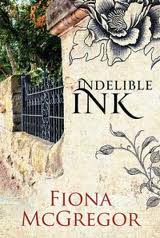I only have two more days left on my pass, so time to watch some longer films.
My DACA Life (69 minutes)
DACA means Deferred Action for Child Arrivals, which was a Obama-era program which put a hold on deportation of young people who had arrived in America as children when their parents moved there. Because their parents did not receive official entry, their children had no documents either. This meant that they could not get a driving licence, obtain scholarships, or travel out of America. Maribel was born in Mexico, but had never been there. There she meets her extended family for the first time. Being given a one-off work permit, she is allowed to travel to Mexico and by being registered returning to America, to finally receive entry documentation. But then Trump gets in, and everything changes.
I Come from Away (58 minutes) Nyamoun Nguany Machar (aka Moon) is a 30-year old African woman who arrived in Portland, Maine with her Ethiopian mother and Sudanese father as a refugee in 1995. Portland is the second whitest state in America. She experiences racism, but nonetheless Portland manages to accommodate 600 asylum seekers arriving from the Congo, under the influence of progressive activists, churches and communities which make them welcome. One of these asylum seekers, David Zwahila Mota, tells of his six month journey from Africa to Central America, up through Mexico and into Maine.
Los Hermanos/ The Brothers (84 minutes)
This was so good. Cuban pianist Aldo López-Gavilán stayed in Cuba while his older brother, violinist Ilmar travelled to Russia as a 14 year old and ended up in the United States. Until Obama, they could not perform together but for just a few years they could. All brought undone by Trump.
Mango House (58 minutes)
What a truly good man. Dr PJ! is a general practitioner who developed Mango House, a combined health/dental clinic, meeting space and food court/mall where refugees could start their own businesses. The documentary covers the clinic’s activity during the COVID pandemic, and shows the myriad ways in which Mango House meets the needs of refugees.
The Garcia Family (28 minutes).‘Stop Time’ looked at the Sanctuary movement from the point of view of the refugee seeking sanctuary. This documentary looks instead at the family outside, supporting and agitating for refugee law reform. Alex Garcia has spent over 700 days in sanctuary at the United Church of Christ in St Louis, Missouri. His wife Carly is American, and they have had five years together. There is no pathway for him to get citizenship, even if he returns to Honduras for 10-15 years. It is only with the Biden administration that the law is changed on Feb 21 2021 and Alex can finally step outside onto the church steps to thank his supporters.
Ocean Wings (12 minutes)
A man and his daughter are walking away from war-torn Syria to join people-smugglers who will take them by sea. But the journey does not turn out as they thought it would.
And so finishes the Immigrant Film Fest 2022. There were far more films there than I could watch, but I feel that I received sufficient value for my $100 (damn you, AUD/US exchange rate!) Given that this was such an issue-based film festival, I guess the ultimate test would be whether I did anything new as a result of it. Yes, I did. Asylum Seeker Resource Centre (https://asrc.org.au/)


